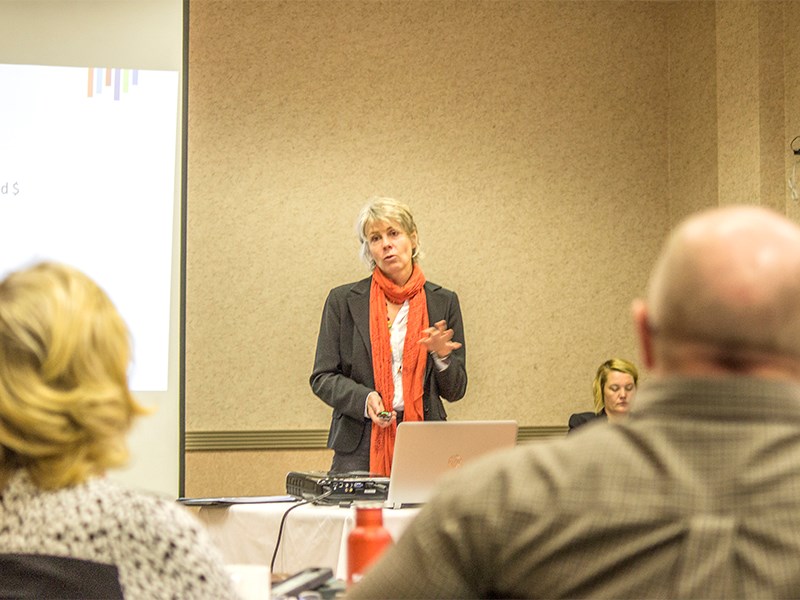Elected officials from Powell River’s three local governments recently heard the first draft of a social action plan that will help address some of the region’s toughest social problems.
Social development consultant Christien Kaaij presented a rough outline of the plan at a forum for Powell River Regional District, Tla’amin Nation and City of Powell River on September 21.
“It was a really positive meeting,” said Kaaij. "People were really supportive.”
Kaaij has been working on the draft since last spring. The three communities have agreed to look at establishing a regional social action and development committee to work in four broad areas, including ensuring suitable affordable housing and early childhood development are available for all residents and citizens. Recommendations will also focus on improving community cohesiveness through poverty-reduction measures.
"There's a real willingness to look at it collectively to find ways to fund the recommendations coming out of this report," said Kaaij.
The report will be submitted to the three local governments once its finalized, she added.
City of Powell River councillor and regional district board municipal director CaroleAnn Leishman said she likes what she has seen so far and is looking forward to seeing more details when the report is submitted. Leishman added that the plan will present what the region’s main priorities should be and what local governments can do.
"Some of it will be easy, but some of it will be more difficult and may cost money,” said Leishman. “That's where we have to figure out how to pay for that and we need to start thinking outside the box."
Housing has been identified as the largest area for improvement in the region.
"There are many different aspects to housing we need to address because we have a huge shortage of rental housing,” said Leishman. “Because of that the cost of rental housing has gone sky-high.”
Regional district board chair Patrick Brabazon said Kaaij’s presentation, backed by data, shows the region is facing clear social challenges.
"Action is going to be required and I'm not yet certain how we will approach it because the process for resolution is not clearcut and simple,” he said.
City councillor Maggie Hathaway said she felt the meeting was a good opportunity for regional discussion.
"I'm pretty excited about the plan and [Kaaij] has the priorities quite right,” said Hathaway. "We didn't move them around a whole lot."
Hathaway said her number-one concern is making sure local governments find the money to hire a social planner to move the report’s recommendations forward.
"Without a social planner, I just see it fizzling out on a back burner somewhere," said Hathaway. "You're only as good as the people who are pushing it forward.”
Electoral Area B alternate director Al Rebane said in order for the regional district to become involved it will have to create a service to do so. He added that he is not convinced he wants to saddle the region’s taxpayers with more burden.
"I see a lot of people who do need the help, like the kids," said Rebane.
Rebane said he wants to see more money coming from developers outside of the community to pay for the needed services, but he also wants to see a much larger discussion on how anything would be paid for.
“I’m for proceeding with caution,” said Rebane.
City councillor and regional district board municipal director Russell Brewer said he wants to see a regional service established. He said dealing with issues such as housing, which is a provincial responsibility, can seem too large for local governments to tackle, but he said the community cannot delay any further.
“We have to step up and people need services now; there is an increasing need,” said Brewer. “The only way we're going to address it properly is to come together as the three governments.”



